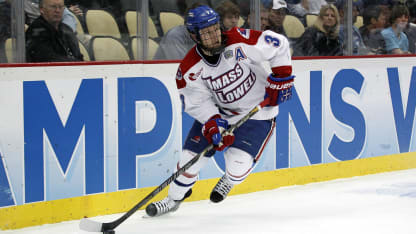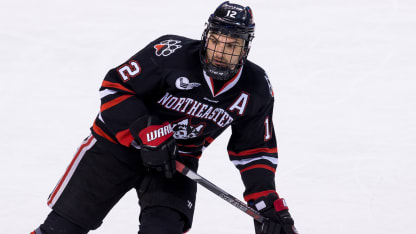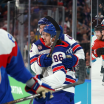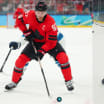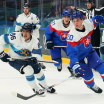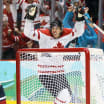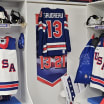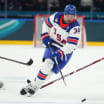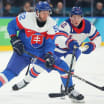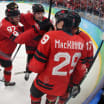"I think you grow a lot as a person between the ages of 18 and 24, and when you go to college and are in that culture you go through those tough times when you're 18," Aston-Reese said. "A lot of what you do away from the rink carries over to the rink, so I feel you have a lot more time to mature as a person."
Many within the Penguins organization believe Aston-Reese plays a similar game to right wing Patric Hornqvist.
"I think he's tough, smart, good in the battle areas and in front of the net," coach Mike Sullivan said. "He's pretty strong along the wall and he's got a mature game. I think it's a matter of getting him into training camp and watching how he does with some of our veteran players. He's a guy who hopefully will continue to develop and push for a roster spot."
The most successful college hockey alum for the Penguins last season was Guentzel. The forward had 33 points (16 goals, 17 assists) in 40 regular-season games, and 21 points (13 goals, eight assists) in 25 playoff games. Guentzel played three seasons at Nebraska-Omaha before signing a three-year entry-level contract on May 23, 2016.
"We knew [Guentzel] was a good player but when they do something like that, it's like 'Wow'," Guerin said.
How does management and the player know when the time is right to sign a professional contract?
"When they get to a point where they're dominating a level, it's time to move up," Guerin said. "When the game is becoming consistently easy, and they're scoring and producing at a consistent rate, they've hit that mark. The player has to be challenged in order to get better so when you hit that mark it's time to move on."
Fourteen of the 19 goals the Penguins scored in the Stanley Cup Final were by former college players.
"It's not surprising to see NCAA alumni playing important roles on the Penguins' rookie camp roster, given the record-setting number of NCAA alumni on their Stanley Cup winning teams the past two years," said Mike Snee, College Hockey Inc. executive director. "They continue to find success in all types of NCAA alumni, from first rounders to undrafted players. It will be exciting for college fans to see if other teams follow a similar formula. Given Pittsburgh's success, it seems natural that they would."

